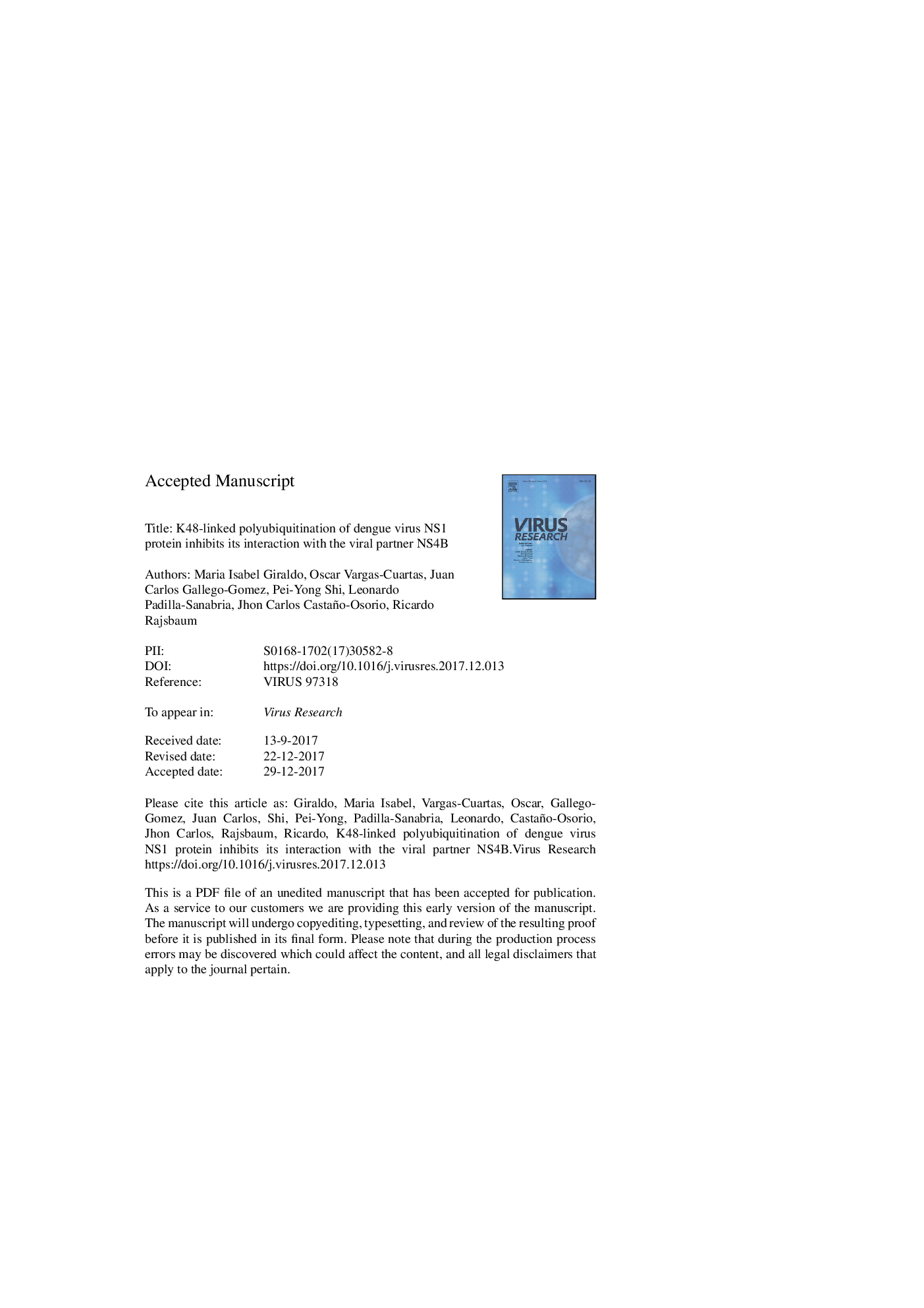| Article ID | Journal | Published Year | Pages | File Type |
|---|---|---|---|---|
| 8751922 | Virus Research | 2018 | 29 Pages |
Abstract
Dengue virus (DENV) is a member of the Flaviviridae family, which is transmitted to mammalian species through arthropods, and causes dengue fever or severe dengue fever in humans. The DENV genome encodes for multiple nonstructural (NS) proteins including NS1. NS1 plays an essential role in replication by interacting with other viral proteins including NS4B, however how these interactions are regulated during virus infection is not known. By using bioinformatics, mass spectrometry analysis, and co-immunoprecipitation assays, here we show that DENV-NS1 is ubiquitinated on multiples lysine residues during DENV infection, including K189, a lysine residue previously shown to be important for efficient DENV replication. Data from in vitro and cell culture experiments indicate that dengue NS1 undergoes modification with K48-linked polyubiquitin chains, which usually target proteins to the proteasome for degradation. Furthermore, ubiquitinated NS1 was detected in lysates as well as in supernatants of human and mosquito infected cells. Ubiquitin deconjugation of NS1 using the deubiquitinase OTU resulted in increased interaction with the viral protein NS4B suggesting that ubiquitinated NS1 has reduced affinity for NS4B. In support of these data, a K189R mutation on NS1, which abrogates ubiquitination on amino acid residue 189 of NS1, also increased NS1-NS4B interactions. Our work describes a new mechanism of regulation of NS1-NS4B interactions and suggests that ubiquitination of NS1 may affect DENV replication.
Related Topics
Life Sciences
Immunology and Microbiology
Virology
Authors
Maria Isabel Giraldo, Oscar Vargas-Cuartas, Juan Carlos Gallego-Gomez, Pei-Yong Shi, Leonardo Padilla-Sanabria, Jhon Carlos Castaño-Osorio, Ricardo Rajsbaum,
